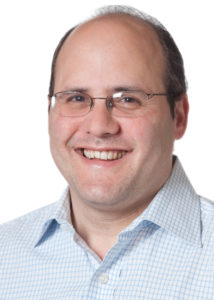The Medical Faculty Council (MFC) honored the recipients of the 2022 Mentor of the Year awards at a virtual workshop on May 10, where the awardees shared insights from their experiences mentoring students, trainees and peers.
This year’s recipients were Katherine L. Wisner, MD, MS, director of the Asher Center for the Study and Treatment of Depressive Disorders and the Norman and Helen Asher Professor of Psychiatry and Behavioral Sciences, and Harris R. Perlman, PhD, chief of Rheumatology and the Mabel Greene Myers Professor of Medicine.
Wisner and Perlman will be recognized for their awards at the 2022 Lewis Landsberg Research Day in September.
Mentorship is fluid
Elizabeth Gerard, MD, associate professor of Neurology, who nominated Wisner and introduced her during the Zoom session, said “She truly inspires and develops anyone who is in her orbit from research coordinator to peers.”

Gerard specifically praised Wisner’s enthusiasm, her love of medicine, science and people as traits that make her an exceptional mentor.
“Dr. Wisner has this amazing skill to develop people. She gets to understand each individual, and their strengths and what they can bring to the table… She is very intentionally inclusive. She strives for diversity on her team,” Gerard said.
She earned her medical degree at Case Western Reserve University and did a post-doctoral fellowship at the University of Pittsburgh. She was professor of Psychiatry, Obstetrics, Gynecology and Reproductive Sciences, Epidemiology and Women’s Studies at the University of Pittsburgh joining Feinberg’s faculty in 2012 to found and direct the Asher Center.
Wisner, who is also a professor of Obstetrics and Gynecology, discussed the fluidity of mentee-mentor relationship. “These relationships where we think of the mentor as somebody who is giving coaching or knowledge or wisdom, and the mentee as someone who is receiving is not my experience across time,” she said. “My experience is that the mentor/mentee relationship is incredibly fluid.”
Throughout her career, Wisner said she has realized the important investment of time in relationships, mentioning the work involved for a mentor to provide exposure to opportunities, protect time and support and challenge their mentees.
Wisner noted that there is no single perfect mentor. “One of the things I do is support that mentees and colleagues have networks of career developmental relationships.”
Social capital is critically important in career development, Wisner said, and mentees are critical to a mentor’s success. Mentees ask questions and provide a sense of buoyancy to the academic space.
A finger on the pulse
Perlman was nominated for the Mentor of the Year award by Carla Cuda, PhD, research associate professor of Medicine in the Division of Rheumatology, and she introduced him at the virtual workshop.
Cuda described Perlman as a true visionary. “He’s a forward-thinking scientist always with his fingers on the pulse of what’s coming next.”
Perlman earned his doctoral degree at Tufts University School of Medicine, and came to Northwestern in 1999 as assistant professor. He left in 2002 to take a position at Saint Louis University as assistant professor before returning in 2008 and being named Chief of Rheumatology in 2015.

In his presentation, Perlman discussed the mentors that have impacted his career and lifted him up, and shared the lessons they have taught him.
Perlman said his first experience in a lab at Columbia University taught him the importance of giving time to mentees. He also learned the importance of reading widely, to understand how science is moving and how it is changing.
One of his mentors at Tufts University taught him about the business side of science, how salary works and how do you get paid, which he has passed onto his mentees. “I really try to make sure all mentees learn where your salary comes from, how you get paid, and to know which times you can argue for more salary, and how that is handled.”
Perlman mentioned the importance of supporting students and trainee projects and encouraging mentees to take ownership of their research and help them stay focused.
Additionally, teaching about work-life balance is also an important role of a mentor, he said. “We have to make sure that people in our lab really get the help they need, directing them to use the resources that are available.”
Many of Perlman’s mentors were from universities across the country and he emphasized the importance of networking across institutions.
“You have to emotional intelligence when you become a mentor, and as a mentee, and you have to remember that this is a marathon. It’s not always a sprint. Our careers are marathons.”
2021 Awardees
In 2021, Robert Murphy, MD, executive director of the Robert J. Havey, MD Institute for Global Health and John Philip Phair Professor of Infectious Diseases, and Rod Passman, MD, director of the Center for Arrhythmia Research and Jules J. Reingold Professor of Electrophysiology, were presented with the Mentors of the Year awards.






